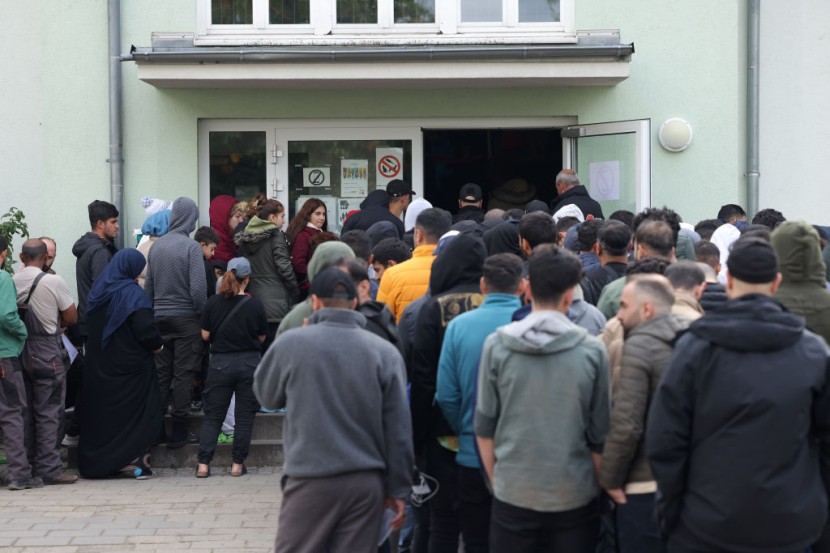
The German government, seeking to defuse what has become a significant political headache, has drafted laws to facilitate the deportation of failed asylum seekers and wants to discuss steps to address migration with the opposition.
A Heavy Political Burden
Refugee camps have been overflowing in recent months, with new arrivals of asylum seekers joining the more than a million Ukrainians who have fled their country since the conflict broke out.
It is a nationwide problem. Therefore, state and regional governments all around Germany have asked the federal authorities for extra money to address the problem.
The numbers of individuals arriving in Germany illegally as refugees are "too high," Chancellor Olaf Scholz told ARD television earlier this week. This coming Friday, October 13, he hopes to meet with opposition leader Friedrich Merz and two major state governors so they can all work together.
In two state elections last weekend, the three ruling parties fared poorly, with rising immigration anxiety seen as a contributing factor. ABC News reported that the votes resulted in significant gains for the far-right Alternative for Germany party and two victories for Merz's conservative opposition alliance, which has attacked Scholz's administration on the matter.
Despite her own crushing loss in her candidacy for governor of her home state, Interior Minister Nancy Faeser underlined on Thursday, October 12, that she intends to continue in her role as Germany's top security officer in charge of the response to migration. "What is very important is that everyone [recognizes] that there is no one single measure that will help us at the moment to reduce illegal migration, but a package of measures," she stated.
Simplified Deportation of Illegal Immigrants
This week, Faeser unveiled a proposal to make it simpler to deport those without legal status in Germany.
The proposed law would, among other things, increase the maximum pre-deportation detention period from 10 to 28 days. It also makes it easier to expel those who have been convicted of a felony and sentenced to a year or more in jail or are members of a criminal organization. Moreover, the government will be permitted to conduct warrantless house searches for identification papers.
The government has previously drafted laws to deem Moldova and Georgia "safe countries of origin," allowing for easier rejection and deportation of asylum seekers from those countries.
In the previous month, Faeser mandated increased surveillance of Germany's eastern borders with Poland and the Czech Republic.
This week, the AP News traveled with a federal police patrol to the Polish border town of Forst. Two groups of migrants were spotted by police; one of them had allegedly been dropped off on the opposite side of the bordering Neisse River and walked across a railway bridge.
The head of the federal police force in charge of the patrol, Frank Malack, has reported a continuous rise in arrests since the summer, with groups of up to 30 persons being identified.








